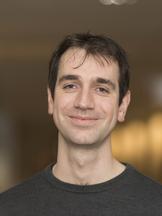
















Dr Wouter Spekkink
Wouter Spekkink joined the SCI as a Research Associate in July 2016. The main focus of his research at the SCIA is on the role of grassroots innovations in the emergence and spread of sustainable practices. One of the defining qualities of the research is that it is explicitly rooted in a process perspective. Wouter seeks to develop a conceptual framework that links social practice theory with theory on grassroots innovations, with an explicit focus on the processual quality of practices and innovations. In addition, his research entails the development of new contributions to Event Sequence Analysis (ESA), a set of methods, techniques and tools for longitudinal studies that Wouter has worked on in the past years, in collaboration with professor Frank Boons. Most of Wouter’s contributions to ESA are driven by the application of graph theoretical concepts to the study of processes.
Wouter completed his PhD on ‘Industrial Symbiosis as a Social Process’ in February 2016, at the department of Public Administration of the Erasmus University in Rotterdam. The PhD project focused on the emergence and development of regional collaborations on industrial symbiosis in The Netherlands, and most of the contributions that Wouter made to ESA were developed as part of the project. During his PhD project, Wouter learned to write software in C++, Java, and R. He has developed a small number of open source projects from scratch, and made several contributions to the open source Gephi project in the form of plugins. Most of these pieces of software were developed to support researchers in the application of ESA.
Before coming to the SCI, Wouter worked as a postdoctoral researcher at Delft University of Technology, in a EU-funded project on Green Lifestyles, Alternative Models, and Upscaling Regional Sustainability (GLAMURS). His main responsibilities in the project included the performance of field work in the Netherlands (e.g., qualitative interviews, focus groups, backcasting workshops, and netmap workshops), the analysis of qualitative data, as well as reporting the results of the research in deliverables and publications.
Wouter’s personal website can be found here. The website includes overviews of publications and software written by Wouter.
